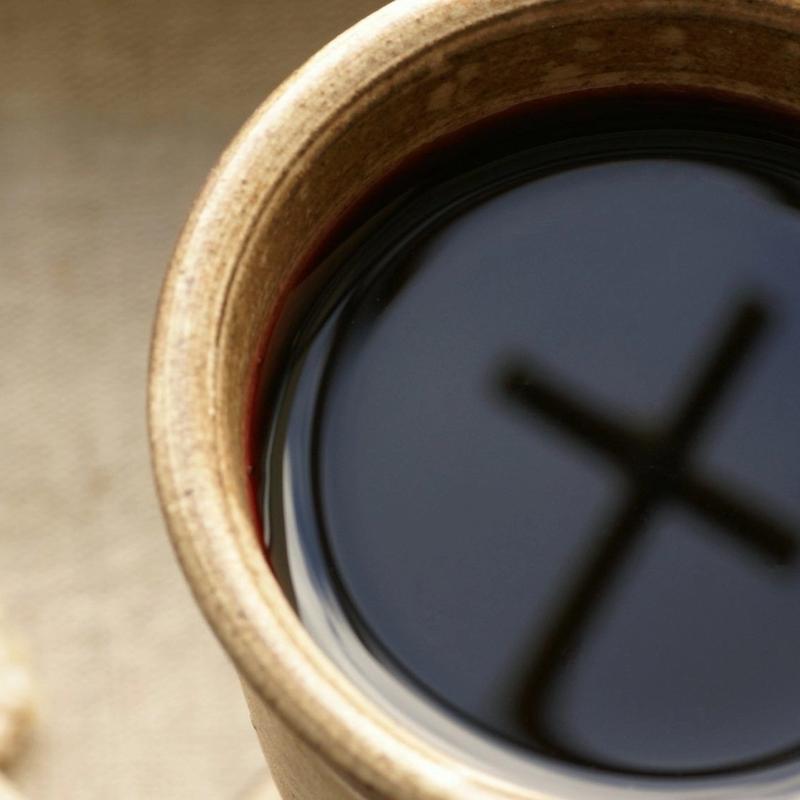So what is a sacrament? Many people think the sacraments are a pledge or dedication of our lives to God. However, the sacraments are actually much greater and bigger than that. They are not so much things we do for God but are actually the means God uses to bless us. The sacraments—baptism and the Lord’s Supper—are vital practices of any church that confesses that Jesus is God and Savior of the world. As such, it is important to understand what they are and why they are important.
A sacrament is a practice instituted by Christ himself.
Sacraments are not practices the church made up or that evolved over time. The sacraments are specific practices Christ himself gives to Christians for their sake. Thus, these things are vitally important for the church and Christians to practice and should always be done with the Word of God and in the way the Word of God commands them to be done.
A sacrament is a sign and a seal.
Like the Batman sign projected in the night sky, a sacrament represents and is linked to something real. Christ gave his church two practices that act as visible signs of Christ and his work of redemption for sinners. Yet, they are more than simply signs but are also seals of the covenant of grace. Like the royal seal on an official document, the sacraments seal the covenant of grace upon the believer, marking the believer as belonging to Christ.
The sacraments are signs and seals because the Holy Spirit uses them to identify us with Christ and the salvation Christ accomplished for us. These physical, visible, and touchable signs and seals represent the spiritual reality of our union to Christ and the salvation he provides. The Holy Spirit is the link between the ordinary practices of getting wet and eating and drinking and the spiritual realities of forgiveness of sins and new life in Christ. It is only by the power of the Holy Spirit that these ordinary things have spiritual significance. Without the Spirit, these things would not be signs and seals.
The sacraments are means of grace.
The sacraments are means of grace, not personal pledges of obedience. Theologian Louis Berkhof explains that the means of grace are ordinary means “by which the Holy Spirit works and confirms faith in the hearts of men” (Berkhof, Systematic Theology, 605). It is easy to think of the sacraments as things we do as a pledge of obedience to God or a sign that we’re giving our life to him. But this is to fundamentally misunderstand the nature of a sacrament. Sacraments are not things we do for God but are ordinary ways the Holy Spirit applies the benefits of salvation. In addition, it is only by faith that a person receives these benefits.
While not the means of salvation itself, the sacraments serve to really and truly nourish and sustain a Christian’s faith. It is important to note that the sacraments are signs and seals of what Jesus did, not what Jesus does to save. By themselves, being baptized and eating some bread and wine do nothing. It is when the Holy Spirit works through them and the participant has faith that the person is renewed and refreshed and has communion with Christ himself.
There are two sacraments Christ instituted—baptism and the Lord’s Supper.
Christ commands his disciples to baptize all future disciples of Christ.
Go therefore and make disciples of all nations, baptizing them in the name of the Father and of the Son and of the Holy Spirit. (Matt. 28:19)
By baptism, Christ seals his name upon and calls to new life the person baptized. It depicts the joining of the person to Christ and is the outward sign of the inward work of the Holy Spirit who cleanses all those who believe by the blood of Christ (Rom. 6:4). Baptism does not itself wash away a person’s sins but rather is a sign of the salvation in Christ applied to the believer by the Holy Spirit through faith. Baptism is a sign and seal of entrance into the covenant of grace and the body of Christ.
Similarly, Christ gave the disciples the Lord’s Supper.
Now as they were eating, Jesus took bread, and after blessing it broke it and gave it to the disciples, and said, “Take, eat; this is my body.” And he took a cup, and when he had given thanks he gave it to them, saying, “Drink of it, all of you, for this is my blood of the covenant, which is poured out for many for the forgiveness of sins.” (Matt. 26:26–29)
Although Jesus is not physically present in the Lord’s Supper, he is spiritually present; and by eating bread and drinking wine as Christ commanded the disciples, the Holy Spirit brings us into fellowship and communion with Christ who is our salvation. Jesus is not resacrificed every time the supper is practiced. Rather, the supper publicly proclaims the saving death of Christ and applies that salvation to all those who believe that Jesus died for their sins (1 Cor. 11:26). Because of what the Lord’s Supper represents, to participate in it without truly believing in Jesus is dangerous for your soul. Paul warns the Corinthian church about this in one of his letters.
For anyone who eats and drinks without discerning the body eats and drinks judgment on himself. (1 Cor. 11:29)
Just as the Lord’s Supper signifies salvation for the believer, it signifies judgment for the unbeliever. This is why not everyone should partake; it is vitally important that a person understand what the sacrament is and be able to truly believe that Jesus died and rose again before participating.
The sacraments are administered by the Church.
Because the sacraments are given to the church and are to be visible signs and seals to all who believe, they are to be administered by the church and taken (when possible) in the company of other believers. In Christ, we are not only connected to him but to all others who believe. The sacraments are not just for the individual to be taken in secret but are to be visible to everyone and taken together as the body of Christ. The sacraments are precious ceremonies of the covenant of grace that God uses to bind us to himself and nourish us until we can enjoy fellowship and communion with him in heaven.
Other articles in our "What Is" series:
What Is the Difference Between Guilt and Shame?




